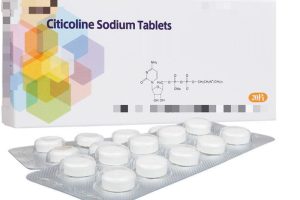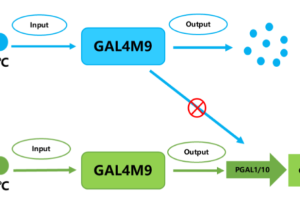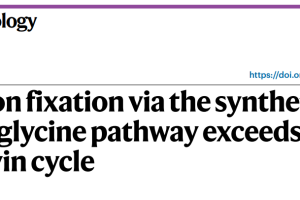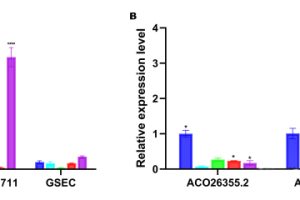When it comes to antioxidants, one must mention is glutathione.
There is a topic “the original aging is not uniform” on the hot search news! Many netizens have found that feeling that they are suddenly getting old is probably not an illusion, but “cliff aging” really happened.
In fact, on the topic of “cliff aging”, scientists have already demonstrated.
A previous paper in Nature Medicine pointed out that people do not grow old slowly, but suddenly age at the three key age nodes of 34, 60 and 78, respectively.
The team conducted a study to test the theory.
They selected 4,263 people between the ages of 18 and 95 as the study subjects, and extracted plasma from the subjects’ blood, measuring 2,925 plasma proteins.
Studies have shown that at age 34, proteins involved in structural pathways such as the extracellular matrix (ECM) drop off a cliff.
The extracellular matrix mainly consists of collagen, elastin, proteoglycan and glycoprotein.
This means that substances such as collagen, which is related to the elasticity and shine of human skin, are significantly reduced by the age of 34.

By the ages of 60 and 78, there was a greater fluctuation in disease-related proteins.
This is why people begin to lose some cognitive and motor functions after the age of 60.
Although it is said that “cliff aging” occurs in an instant, in fact, it is only the result of quantitative change caused by qualitative change.
Because our body’s metabolism, including respiration, digestion, energy production and other metabolic activities, all the time produce a large number of free radicals.
Excessive free radicals can lead to oxidative stress damage to cells and tissues, and even lead to a variety of diseases and accelerated aging.
In the process of anti-aging, anti-free radicals and anti-oxidation have become crucial links.
glutathione (also known as GSH) is the main antioxidant in our bodies.

It is a small tripeptide composed of glycine, cysteine, and glutamic acid.
Glutathione plays a variety of biological functions in our body, it can effectively remove free radicals in the body, reduce oxidative stress reaction, protect cells from damage, delay the aging process and so on.

Super antioxidant, inhibit melanin
Oxidative stress is when the body produces too many free radicals for the body to fight them effectively, which can lead to a variety of diseases such as diabetes, cancer, rheumatoid arthritis and even cancer.
Glutathione reduces the effects of oxidative stress, which in turn reduces the risk of developing these diseases.
Glutathione’s excellent antioxidant capacity can help protect against UV damage while repairing damaged skin.
Assists liver metabolism, detoxification and detoxification
Glutathione is most widely distributed in the liver and kidneys, where it helps these organs metabolize toxins and other substances.
A lack of antioxidants such as glutathione may trigger liver cell death.

And, with or without alcohol abuse, this can lead to fatty liver disease.
Glutathione has been shown to improve the condition of alcoholic and non-alcoholic chronic fatty liver disease, but it has also been found to be helpful for the overuse of certain drugs.
Anti-aging, help the body’s immune function
Studies have found that as we age, we have less glutathione in our bodies, which in turn makes our bodies less able to burn fat and more likely to store fat.
It may also be helpful for diseases that tend to develop in old age, such as Parkinson’s disease (although these are only a few studies, and more complete studies and experiments are needed to complete the data).
The antioxidant power of glutathione may also help fight inflammation associated with immune system diseases.
Glutathione helps the body
In recent years, with the deepening of the study of glutathione, more and more evidence shows that the abnormal level of glutathione is closely related to the occurrence and development of many diseases.
In addition, enough glutathione can keep us away from many diseases, but also can fight aging, anti-wrinkle, and make skin more shiny.
1. Protect the liver
Glutathione has a protective effect on the liver, and it has been found that glutathione can improve liver diseases such as viral hepatitis and alcoholic cirrhosis.
The mechanism is that glutathione can remove free radicals, reduce the oxidative stress damage of the liver, and has a detoxification effect, contributing to the detoxification function of the liver.

(1) Patients with alcoholic liver injury
The Gastroenterology Department of the Second People’s Hospital of Yunnan Province conducted a clinical trial from 2005 to 2007, involving a total of 63 patients with alcoholic liver injury (58 males and 5 females, aged between 26 and 65 years old, drinking for more than 5 years, and drinking an average of more than 40g per day).

Patients were randomly divided into the experimental group (supplemented with reduced glutathione) and the control group with 30 patients who abstained from a low-fat diet and were re-examined after 8 weeks for liver function, lipids and B-ultrasound.

It can be seen from the data after treatment that the improvement of liver function indexes in the reduced glutathione GSH group is significantly better than that in the control group.
(2) ability of glutathione to metabolize alcohol
To understand the actual effect of glutathione on alcohol metabolism, three groups were given placebo, curcumin (30mg), glutathione (100mg), and given alcohol (1.25ml per kg of body weight, equivalent to 1 cup of 200cc of granlivir). At 20, 60, 120, and 180 minutes, the subjects took breathalyzer breath tests and questionnaires.
Using the breath test results, the glutathione (GSH) group was found to have significantly lower alcohol scores!

A questionnaire survey of the subjects found that glutathione was the most effective in improving symptoms of discomfort after drinking alcohol, including wakefulness, drowsiness, headache, stomach pain, vomiting, and dizziness.
In another study, 100 men were given either 1100mg of glutathione or a placebo, and their blood alcohol levels, blood acetaldehyde levels, and hangover symptoms were measured after drinking alcohol.
The results found that glutathione group significantly reduced blood alcohol concentration and blood acetaldehyde concentration, and the concentration of alcohol breath test was reduced by 50%, and hangover symptoms such as nausea, vomiting, headache were also significantly improved.
Glutathione has been shown to reduce alcohol absorption, enhance alcohol metabolism, and prevent hangovers.
(3) Hepatitis patient
In addition, in an experiment published in the journal Medical World, the researchers cultured C3A cells in vitro, added plasma from patients with chronic severe hepatitis in the medium, and simultaneously added three doses of reduced glutathione GSH (25mmol/l, 5mmol/l, 1mmol/l).
Compared with normal plasma and medium, the changes of GSH and lipid peroxide content in cells were detected at 3 time points at 24 hours, 48 hours and 72 hours, respectively. The results showed:
Adding GSH to slow weight liver plasma can increase the intracellular GSH content, supplement the loss of GSH, reduce the intracellular lipid peroxide content and reduce the degree of lipid peroxidation.
2. Inhibit melanin and whiten skin
Glutathione is ubiquitous in the human body, is a natural reducing agent in the human body, easy to be oxidized into GSSG, so as to protect other substances from oxidation, is the main “killer” of free radicals in the human body, protect the sulfhydryl group in the protein is not oxidized, repair the destroyed sulfhydryl group in the protein, so that the protein can restore the active function.
In addition, when ultraviolet light shines on the skin, it will also produce a large number of free radicals, which will activate the production of melanin.
Glutathione can destroy these free radicals, inhibit the activity of tyrosinase, regulate the conversion mechanism from eumelanin to fusomelanin production, prevent melanin production from the front end, and play a role in whitening.
Two trials of oral GSH by Arjinpathana and Asawanonda in a Thai population, and a trial by Handog et al in Filipino women.
It involved administering 500 mg/day of GSH to the study population in two separate doses, with the difference being the use of lozenge lozenges in one study to enhance systemic absorption of glutathione.
The primary efficacy outcome of both trials was to assess melanin indices before and after treatment.

Arjinpathana and Asawanonda’s randomized, double-blind, double-arm, placebo-controlled study in 60 healthy medical students showed a sustained reduction in melanin index at all six sites assessed in subjects in the GSH group, with statistically significant reductions exceeding placebo at two sites.
Open-label, single-arm experimental study conducted by Handog et al.
In 30 healthy Filipino women (aged 22 to 42 years) with Fitzpatrick IV or V-type skin who used lozenge instead of GSH capsules, all subjects reported a significant reduction in melanin index at sun exposure and sun protection sites, and moderate skin whitening was observed in 90% of subjects in the global evaluation.
Glutathione for melasma
In 2018, Egyptian scholars observed the efficacy and safety of topical and oral glutathione in the treatment of melasma.

The study subjects were divided into three groups, the first group (10 cases) applied 2% glutathione cream to the right side of the face, while a placebo cream was applied to the left side (as a control) twice daily for 10 weeks.
The second group (10 cases) took glutathione capsule (500mg/d) orally for 4 weeks. The third group (10 cases) was orally administered placebo capsules (control group) once a day for 4 weeks and followed up for 3 months.
A significant reduction in MASI (melasma area and severity score) was observed in patients treated with topical and oral glutathione, while there was no response in patients treated with placebo. At the end of follow-up, no obvious adverse reactions were found.
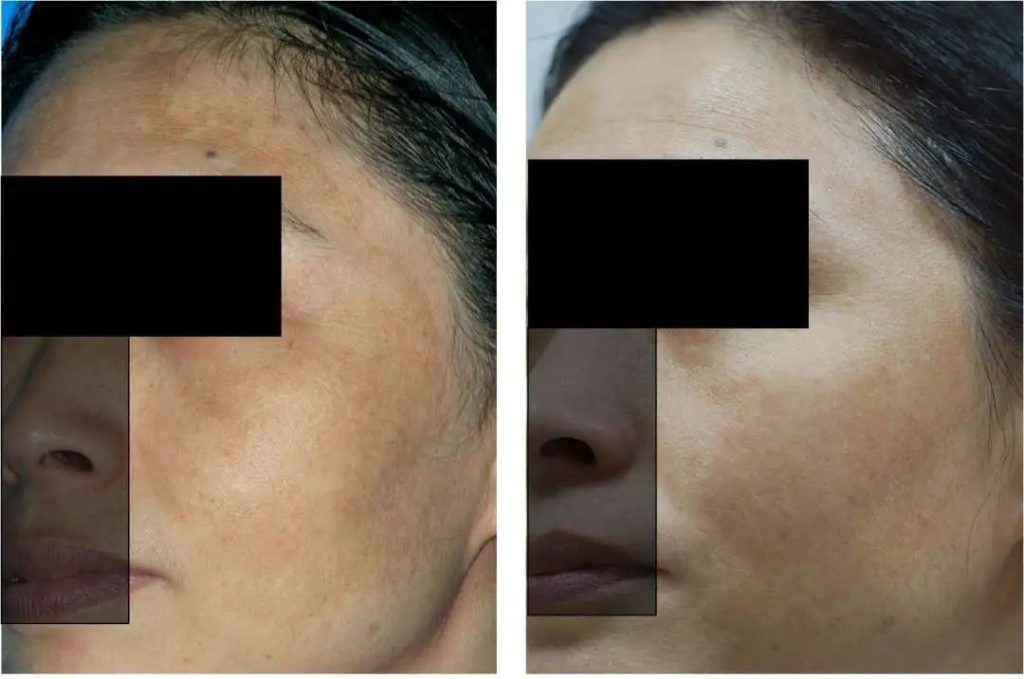
After 4 weeks of glutathione intake, melanin index decreased in all six parts of the face, with the most significant reduction on the right side of the face and on the left forearm exposed to sunlight, suggesting that glutathione can inhibit UV-induced melanin accumulation and improve skin uniformity and color.
After 8 weeks of glutathione intake, the accumulation of melanin caused by ultraviolet radiation was reduced, the melanin damage was restored by nearly 30%, and the skin redness was also improved, and the redness damage was restored by nearly 70%, showing a good effect of repairing the skin damage caused by ultraviolet light.
After 8 weeks of glutathione intake, the 18% group had 65% more skin water than the control group.
Water evaporation was reduced by 300%, indicating that high intake of glutathione can reduce water evaporation from the skin epidermis and maintain skin moisture.
detoxification
Glutathione has a certain detoxification effect on the poisoning caused by carcinogens such as CO, heavy metals, organic solvents and epoxides, and can be combined with it and discharged from the body.
It has a protective effect on leukopenia caused by radiation, radiation drugs or anti-tumor drugs.
Glutathione can bind to various carcinogens and play a detoxification role through liver metabolism, such as aflatoxin.
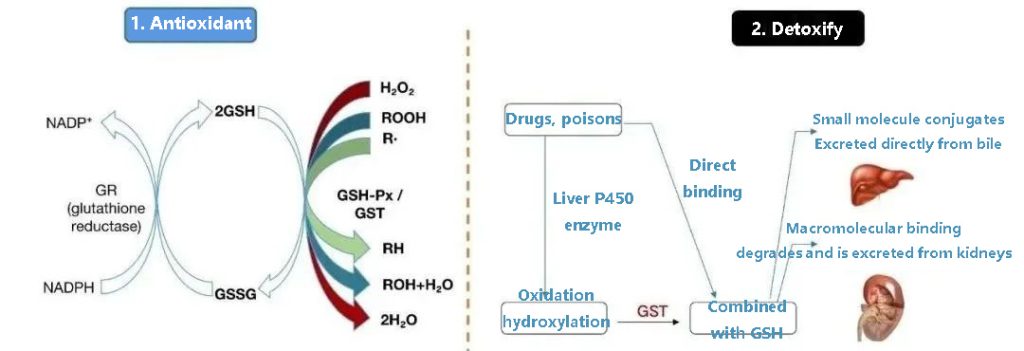
In the case of lead toxicity, large amounts of glutathione are produced in the body in response to lead poisoning.
Excess lead reduces the storage of glutathione in the liver by 28%. Supplementation with glutathione can treat lead poisoning. Glutathione forms a chelate with lead and cadmium, allowing it to be excreted from the blood.

Glutathione can also treat the toxicity of mercury.
From 2 to 4 weeks after birth, the body is able to excrete mercury through bile, which is closely related to the increased ability of the liver to secrete glutathione. The deficiency of glutathione in the body is also often related to genetics.
Mercury poisoning can cause hair loss, heart and mental illness.
Minamata disease is a form of mercury poisoning caused by environmental causes, and the body cannot expel mercury from the body without sufficient glutathione.
Glutathione can reduce the heavy metal arsenic poisoning.
In animal studies, they were fed arsenic-contaminated milk for 40 days, then supplemented with a dose of 100 mg/kg of glutathione, and within 10 days their blood arsenic levels returned to normal.
Fever caused by arsenic poisoning also subsided within 20 days, and symptoms of anemia and leukopenia also improved.
Pigment on the skin was also reduced, and other clinical signs of arsenic poisoning improved.
Glutathione can also replace dimercaprol (a thiol drug) in the treatment of arsenic poisoning.

In short, glutathione (GSH) is a naturally occurring antioxidant produced by our bodies.
GSH is prevalent in microorganisms, animal and plant cells at high concentrations (0.1~10mmol/L) (and mainly exists in reduced form), and the liver has the highest GSH content in animals and human beings.
The liver is the main organ for GSH synthesis, and the synthesized GSH can be transferred out in large quantities through bile and hepatic portal vein.
However, with age and changes in the external environment, its content in the human body will gradually decrease.
In order to delay our own aging speed and skin problems, we can take the external glutathione supplement to increase the content of their own antioxidant factors.
How to supplement glutathione?
1. Ingestion through diet
◎ Ingredients containing sulfur:
Sulfur molecules can help the synthesis of glutathione, such as cruciferous plants, alliums, and avocado are rich in sulfur ingredients (such as broccoli, cabbage, radish, onion, onion, garlic, etc.).
◎ Food sources containing glutathione:
Spinach, avocado, asparagus (most abundant), okra.
◎ Ingredients containing selenium:
Selenium is a mineral that helps maintain glutathione activity. Beef, chicken, fish, offal, cheese, brown rice, and nuts are all major food sources of selenium.
◎ Vitamin C Supplement:
Vitamin C is a water-soluble vitamin that acts as an antioxidant to protect cells from oxidative damage.
Supplementation with a variety of different antioxidants can also avoid glutathione consumption.
In addition, vitamin C also helps to reactivate glutathione by converting oxidized glutathione back to its active form.
2. Choose a nutritional supplement
For some special populations (such as the elderly, patients with chronic diseases, people with weakened immunity, etc.) or in certain circumstances (such as high-intensity exercise, long-term exposure to polluted environments), the body’s glutathione needs may not be met through diet alone.
At this point, a glutathione supplement may be considered.
However, when choosing a supplement, follow the advice of your doctor or professional dietitian.
Second, in addition to diet and supplements, maintaining a healthy lifestyle also helps maintain glutathione levels in the body.
Moderate exercise can promote blood circulation and metabolism, which is beneficial to the synthesis and utilization of glutathione.
Adequate sleep can ensure the normal repair and function of various organs of the body, and indirectly maintain the balance of glutathione;

In addition, reducing bad habits such as smoking and drinking and avoiding exposure to harmful substances also help protect the body’s antioxidant defense system and maintain normal levels of glutathione.
With the change of modern lifestyle and the increase of environmental pollution, our bodies are facing more and more oxidative stress challenges, and glutathione supplementation is particularly important for maintaining good health
Reference materials:
- [1] LAPENNA D. Glutathione and glutathione-dependent enzymes: From biochemistry to gerontology and successful aging [J]. Ageing Research Reviews, 2023, 92: 102066.
- [2] CAI Youhua, Wu Zihao, Huang Xiaochen, et al. Research progress on characteristics, industrial production and application of reduced glutathione in health industry [J]. Food and Machinery, 2012,38(11):1-10.
- [3] Atkuri K R, Mantovani J J, Herzenberg L A, et al. N-Acetylcysteine—a safe antidote for cysteine/glutathione deficiency[J]. Current opinion in pharmacology, 2007, 7(4): 355-359.
- [4] Schmitt B, Vicenzi M, Garrel C, et al. Effects of N-acetylcysteine, oral glutathione (GSH) and a novel sublingual form of GSH on oxidative stress markers: A comparative crossover study[J]. Redox Biology, 2015, 6: 198-205.



